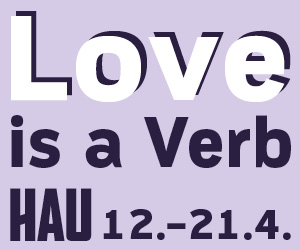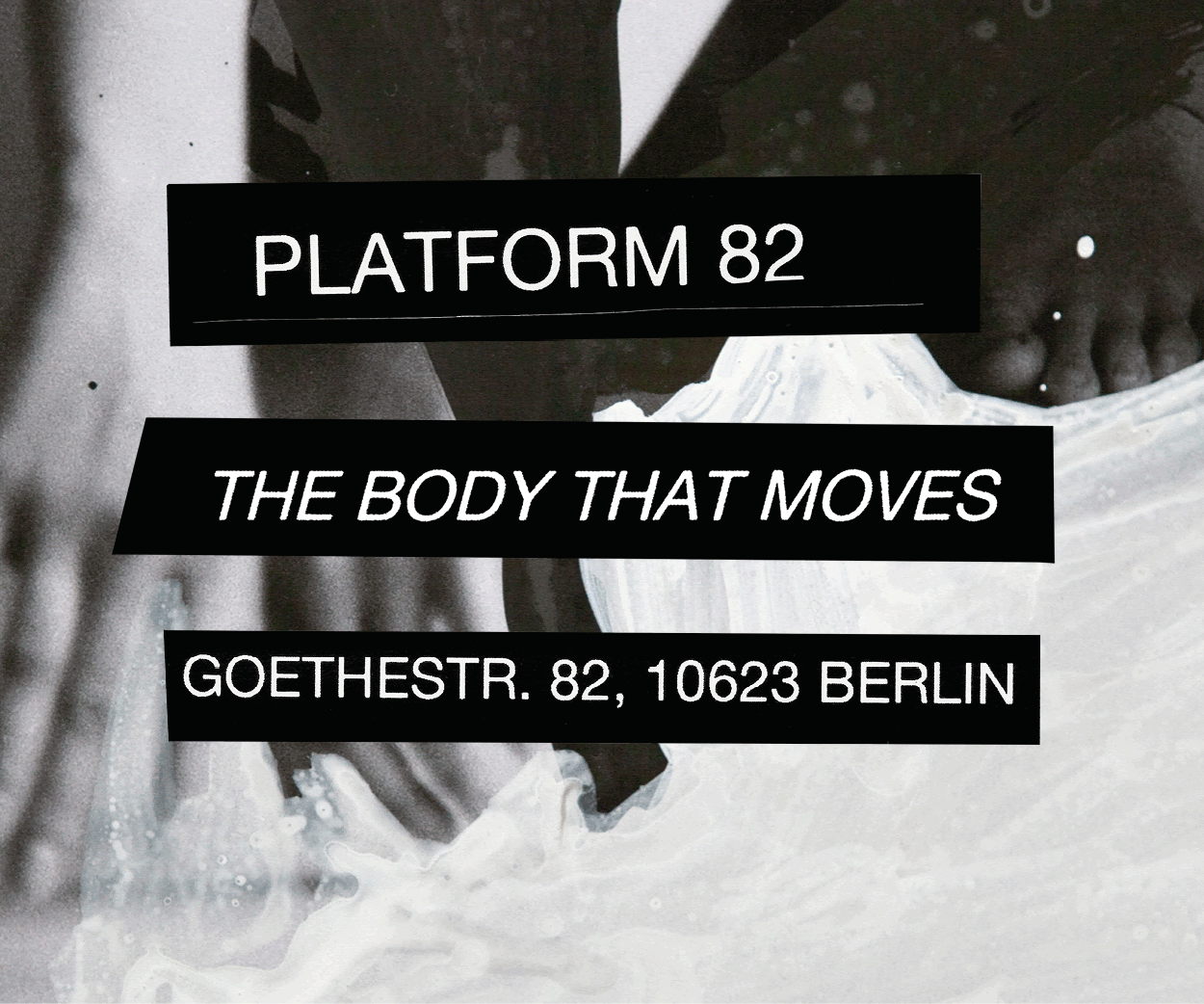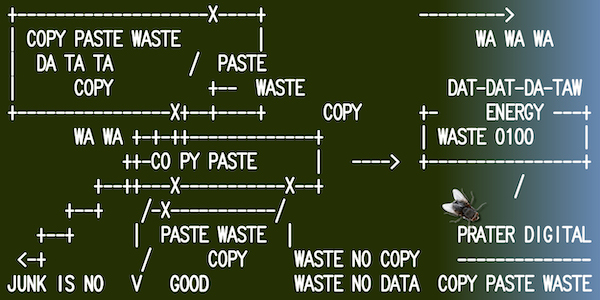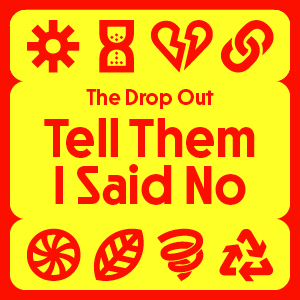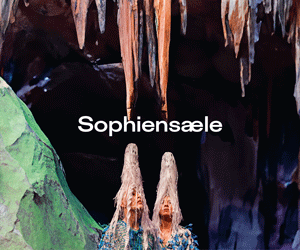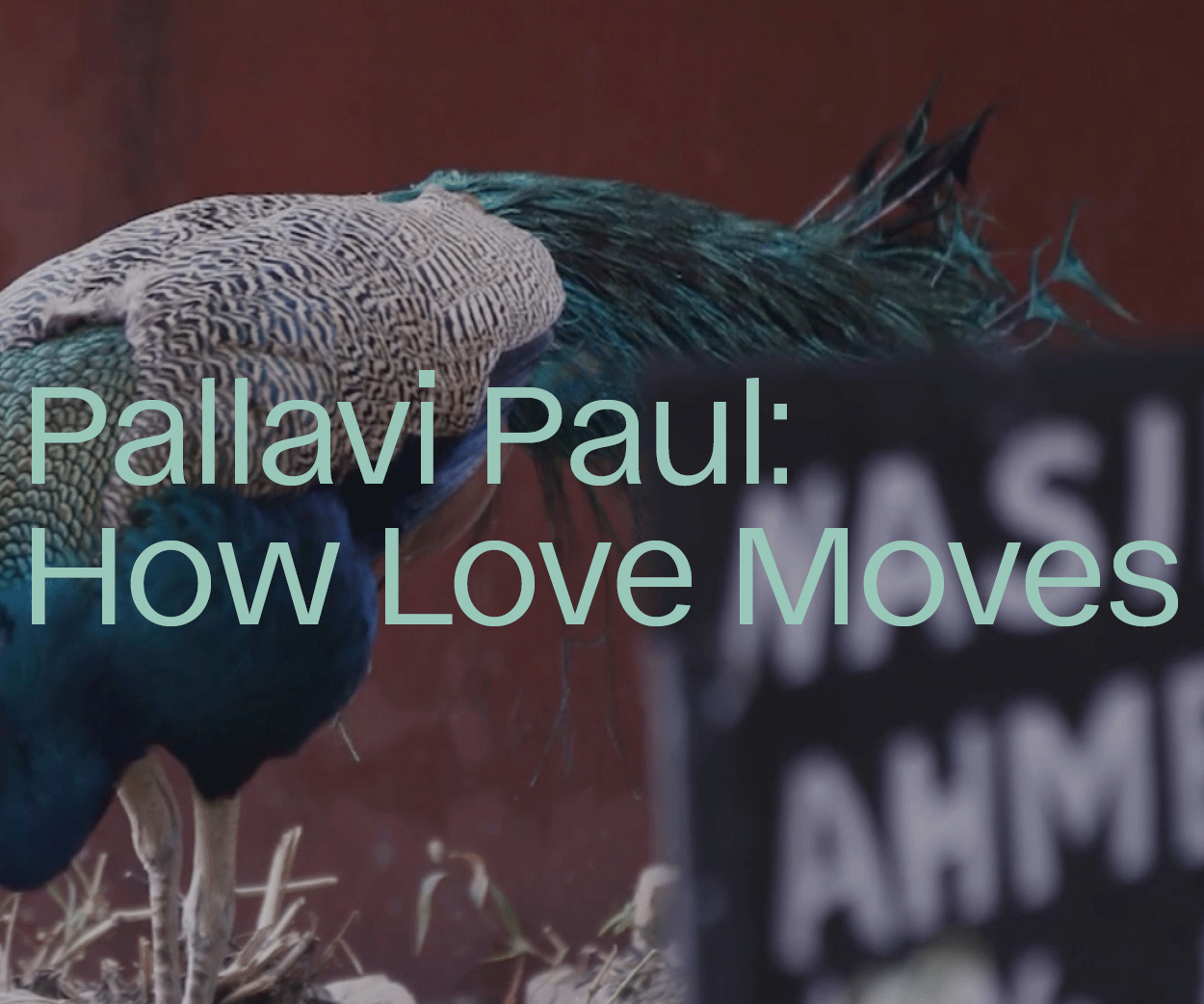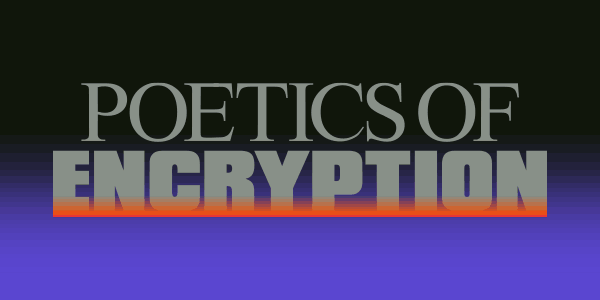documenta 14 will open its doors for the second time this year, in Kassel on June 10th, amid less than glowing reviews. After the first segment opened on April 8th in Athens, the exhibition has had far more negative critique than positive response; including some very serious allegations into the docking of pay to below minimum wage, local exclusion and the exploitation of minority groups as hot spectacles.
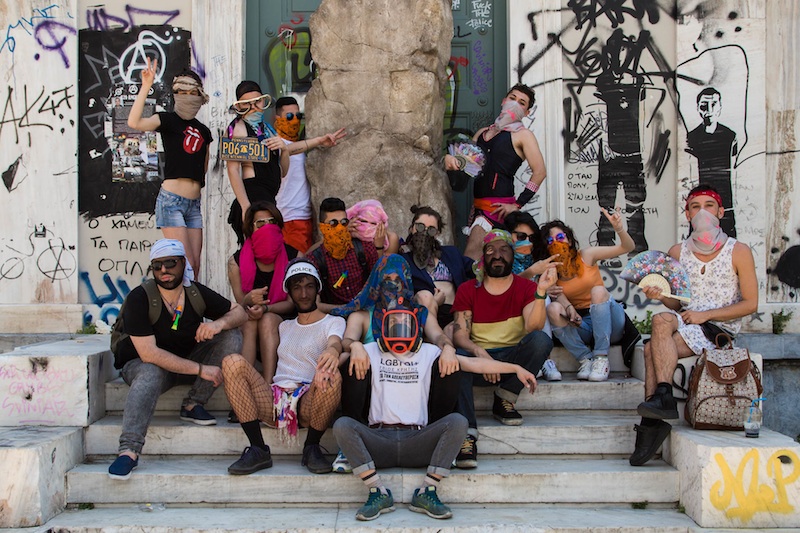
#rockumenta // Courtesy of LGBTQI + Refugees
One group to take action against documenta 14 in Athens is Artists Against Evictions (AAE), who penned an open letter to all documenta 14 viewers, participants and cultural workers on the opening night, dropping it on e-flux conversations. To date, it has 22.3K views, going viral over the opening days of the Athens event, with more views than visitors to the exhibition in its opening hours. AAE’s letter was firm but poetic, drawing attention to “poverty tourism” and the ongoing strife against refugees and the cultural Left, from the municipality of Athens and documenta 14 as a program of propaganda for crisis. Making headlines this week, the activist group LGBTQI + Refugees in Greece are presently holding a monolith from the Spanish artist Roger Bernat ransom (the ransom would have been given directly to projects supporting LGBTQI + Refugees in Greece), after they were paid by D14 to interact with the rock as an LGBTI group, a grossly naive action supposedly addressing alienation. Bernat replied recently to the group’s ransom saying it’s a copy and he would love to see pics on social media. This is just one of the many heinous replies to political action and critique from those involved in the D14 framework.
AAE works closely with groups like LGBTQI + Refugees in Greece, but acts as a self-organised, swarm-like cultural social structure situated predominantly in and around Exarcheia, Athens. Exarcheia is a hotbed of autonomous living, known for its anarchist values and its hospitable response to the refugee crisis since 2015, housing over 2000 refugees in TAZ locales. AAE is a collective of people who identify as artists and offer an alternative structure for a different future, by opening houses and communities that are beyond the state’s external authority. AAE tries to offer a haven for thousands of displaced bodies across Europe through culture and self-expression.
The following interview was conducted with AAE, who have wished to stay anonymous.
Penny Rafferty: Your choice to publish your open letter on an art forum, e-flux, seemed to show you were hoping for a global conversation. Did you achieve that?
Artists Against Evictions: We don’t have illusions that the static, institutionalised character of documenta 14 would transform itself as a result of our letter. The letter was not addressed to documenta anyway, but to the artists, cultural workers and visitors who will participate within it. D14 is an abstraction, the intention was to leverage and redirect some of that critical engagement, redirecting some of that collective power in such a way as it might help us to halt the evictions. It began as a conversation, but it must also go beyond a conversation, or the merely discursive.
Similarly, this situation is not restricted to a national level and it can’t be contained by borders. We have seen people enclosed in camps outside the city and out of view, the forceful shut-down of borders, the building of armed walls and pushbacks to Turkey. Displacement is not a temporary situation. This is not the ‘others’ problem, it is ‘our’ problem, a product of global forces and actions. A global interaction and networks of action can revive these considerations out of the dead, discursive gallery environment it is buried in right now.
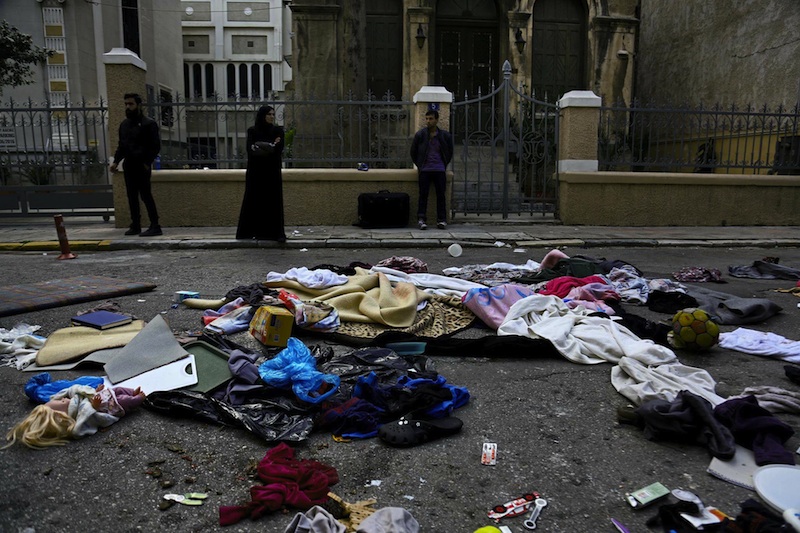
Day after the eviction of housing squat Alkividou, March 2017 // Copyright Alexandros Katsis, courtesy of underground railroad
PR: D14 seems to label Athens in a perpetual state of crisis. Would you agree to this?
AAE: In the conversations that started to arise, supporters of this year’s D14 started arguing that it was an attempt at formulating “a decolonial project.” The appropriation of this term is quite troubling, if not for the reasons we have already stated, at least as long as Aegean Airways sets up a direct Kassel-Athens flight for the purposes of this art event. Labelling a place as being in crisis implies it needs some sort of rescuing. We are fed up with messianic promises or big narratives that expire as soon as the final curtain on D14 falls. Likewise, this notion of Athens as a site of perpetual crisis normalises the crisis, makes it almost inevitable, like some natural feature of the landscape. It is not inevitable, it is the result of a consciously enacted political-economic situation. The authority that produces austerity, dispossession and enforced migration is the perpetual crisis, not Athens.
We suggest that artists shouldn’t follow the mainstream narrative and instead should read between the lines to find or imagine fruitful ground for new significances and new ways for them to emerge. The negativity of crisis always attracts those that want to profit from it. D14 tried to reinvent itself inside the political and social frame of the Greek crisis and follow the existing trends of foreign investment, poverty tourism and its pseudo-messianic, missionary image. Of course the results of austerity measures are clearly visible in Greece, as they are in other places, but paying debt to Germany in olives will just not suffice. Not even performatively. That’s something no fake referendums have been able to change. To us, it is not just a financial crisis, it is a crisis of meaning, a crisis of the old social forms that are slowly being dismantled, making way either for an authoritarian dystopia or a liberated global society, although the predictions of both are as yet superficial. The challenge is here and time is at a crossroads, let’s pass this or get lost on the way.
PR: Was D14 always going to fail? Or could you see how it could have effectively learned from Athens?
AAE: I think they are learning from Athens, but maybe not in the way they expected. Many of documenta’s artworks have enthusiastically sought to serve their international audience with an appropriative, naive and superficial set of Greek clichés. Perhaps it is fitting, then, that what they might have learned from Athens can be summarised with a version of the Socratic paradox: ‘I know one thing, that I know nothing.’
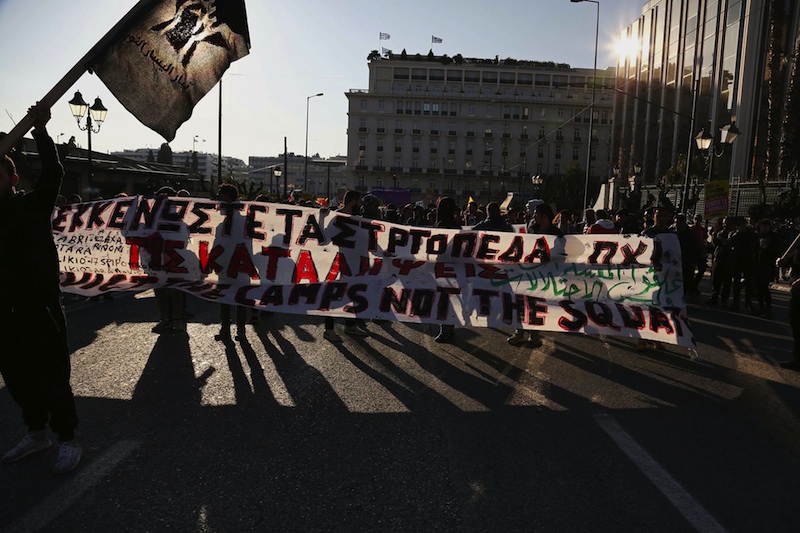
Residents of the squats march together against evictions on 18M demonstration anniversary of the EU Turkey deal, March 18, 2017 // Copyright Alexandros Katsis, courtesy of underground railroad
PR: You speak about the atrocities of the Major Kaminis in the open letter, who Adam Szymczyk publicly thanked at the press conference. What is his position regarding local culture in Athens?
AAE: Kaminis is openly one of the most fanatic persecutors of any movement or action that doesn’t take an institutional form. Further, he is generally very hostile to any attempt, action or event that is not under his own institutional umbrella. He is the one who facilitated the eviction of Villa Amalias, one of the most emblematic squats of Athens, which had been running for 22 years, among others, and one of the key players in the State’s planned attack on refugee squats. His segregational policies only benefit mainstream culture, which, as we learn from history through vivid examples like Haight Ashbury in the ’70s or Berlin in the ’00s, leads to gentrification and a distortion of the characteristics of “special” areas. In this sense, this glamorous public affection between both was doomed to fail at the level of context. There is an inherent contradiction. Or, to put it another way, Adam gave his rib but Kaminis failed to transform it into an artistic Eve.
PR: Wandering down those streets of Exarcheia, Athens in April was perhaps the most telling narrative that Szymczyk missed. The “crisis” seems something of a mythology, orchestrated from above: obviously the crippling financial situation is very real, the people are oppressed but they are alive and fighting.
AAE: Of course, the fact that it happened in Exarcheia was not accidental. Exarcheia is a “free zone”. Politically, it’s a heavily charged area in the centre of Athens, that has had a very strong anarchist and radical background since the end of the seventies. It’s very important to emphasise and preserve the value of such zones within the urban space, where these social experiments can arise. Here, the refugee community have more protection from sympathetic neighbours against real threats like the police, fascists and conservative reflexes of the government.
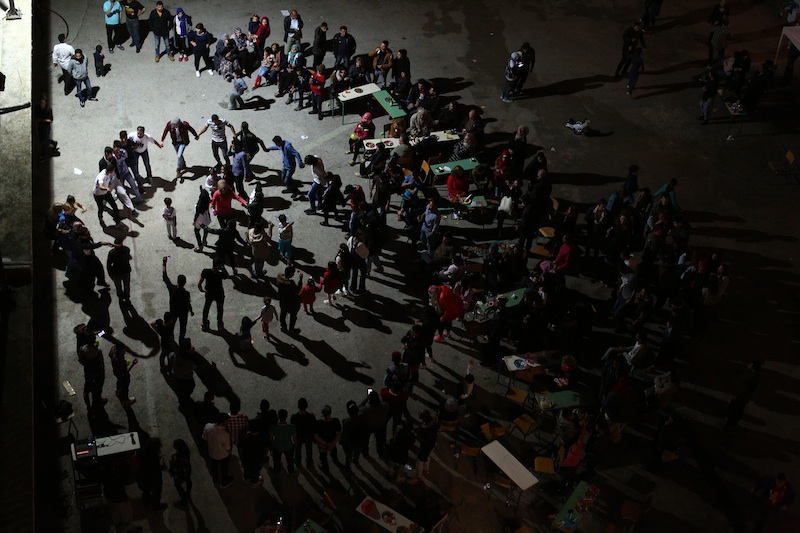
Refugees, volunteers around the world dance at the feast for one year of occupation in Athens, April 8th, 2017 // Copyright Alexandros Katsis, courtesy of underground railroad
PR: What is the situation now?
AAE: Athens has very little to do with D14. It is just a scenic backdrop. D14 hasn’t diffused into society. It has staged its superficial rhetoric, pumped up the city’s Airbnbs and exploited its temporary workers. It is only a glamorous window on an institutional feast, parties and an elite, which mostly ignores the underground and upcoming art scene.
PR: Art and crisis is hot right now, but do you think it at can act as a political tool?
AAE: Artists/art can present an alleged radical approach today, largely without any motive to join its parallel political counterparts. It is clear that documenta 14 cares little for the contradictions of its political philosophy and its state-funded radicality, or the local struggles on which it treads.
There is something to be said however for working tactically within the arts. Specific forms of political economy, alongside inherent contradictions of functional autonomy, instrumentalized freedom and its useful uselessness can be effective methods of destabilization. However, the production of artwork and its theory alone cannot create social transformation or crush the true social-political reality.
PR: So the second part of documenta will open in Kassel on June 10th. Do you hope to see solidarity with Athens?
AAE: Twenty years ago in Kassel the Kein Mensch ist Illegal (No one is illegal) campaign started, during documenta 10. A network of antifa, migrant and refugee solidarity groups came together to struggle against the life-threatening politics that declared human beings as illegal. Let us not forget we are still living in this state. This year the group consisting of people who took part two decades ago and newcomers have organised an action week starting on June 19th in Kassel, to renew its demands and assess the damage of ignoring their plea.
Action is a continual struggle, If you are in Kassel, or here in Athens, or anywhere else, just remember there is always something more you can do. Keep your ears to the ground, pound the darkened streets with your feet, share a post on social media. Unlike Documenta, political ideology and action shouldn’t only be active for 100 days a year, but everyday, everywhere, every hour: one struggle, one fight.
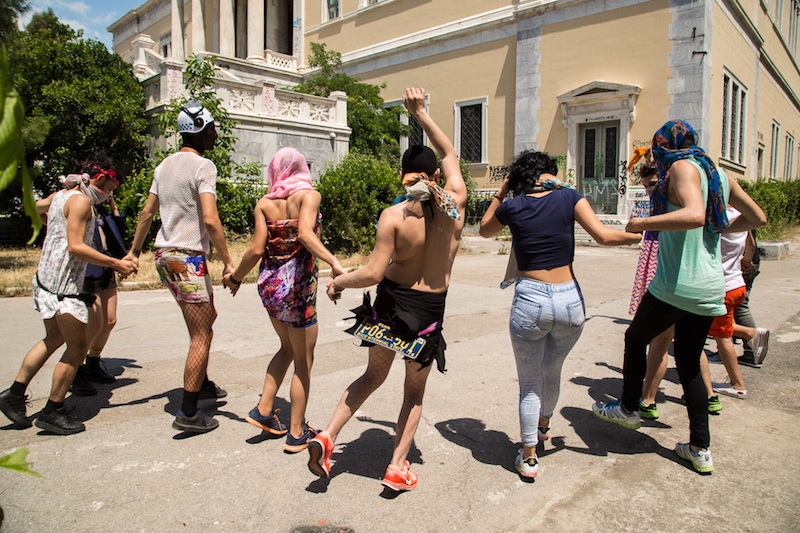
#rockumenta // Courtesy of LGBTQI + Refugees


